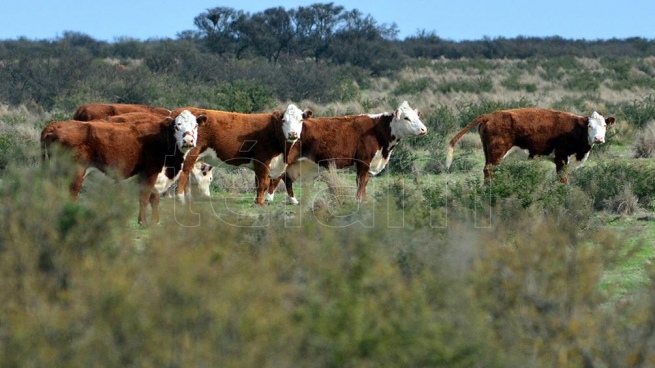The substitution of 20% of meat consumption beef and lamb for proteins that reproduce the texture of meat could halve carbon dioxide (CO2) emissions before 2050 and deforestation caused by livestock, according to a study published Wednesday by the academic journal Nature.
“Based on current projections of population growth and food demand, replacing half of red meat consumption with proteins called microbialgrown in stainless steel containers, would reduce tree loss and CO2 pollution by more than 80%,” the scientists calculated.
“With a relatively small change in ruminant meat consumption, greenhouse gas emissions from tropical deforestation can be quite small“, assured Florian Humpenoderone of the authors and a member of the Institute for Research on the Impact of Climate Change in Potsdam (PIK), according to the AFP agency.
“It is an important contribution to reach the goals of the Paris Agreement for the climatewith supplemental benefit sharing for other durability goals,” he added.
Three landmark climate reports published by the United Nations (UN) since August showed alarmingly that the fundamental objective of the text, that is to say limit global warming to well below 2°C, is “seriously threatened”.

The global food system produces a third of greenhouse gas emissionsand the production of beef is the main responsible for the agricultural sector, they detailed.
On the one hand, the cattle industry leads to the destruction of tropical forests -which would otherwise capture CO2-, to make room for pastures and crops, such as soybeans and corn, destined to feed livestock.
Furthermore, ruminants are a major source of methane, a greenhouse gas 30 times more powerful than CO2 on a 100-year scale.
“Microbial meat substitutes have been on supermarket shelves for decades, but as the world grapples with climate solutions, these ‘new foods’ are becoming a major industry for decades to come.”
The artificial meat obtained by the cultivation of microbial or fungal cells undergoes a fermentation process, similar to that of wine or beer.
The global food system produces a third of greenhouse gas emissions, with beef production being the primary culprit in the agricultural sector.
The cells feed on glucose from sugar cane or beets to make protein, meaning production requires cultivated land, but much less than for red meat, the study found.
“Assuming that current agricultural methods and consumption habits are maintained in the next 30 years, the global area of pasture would increase by about one million square kilometers“, they warned.
However, if 20% of this meat is replaced by microbial protein, “acreage would be below current levels.”
Hanna Tuomisto, a researcher at the University of Helsinki, said the benefits of protein made from microbes or mushrooms go “beyond climate or environmental impact” and that microprotein is an “ideal” substitute for meat because ” It is rich in protein and contains all the essential amino acids.
In addition, in this way, the use of water for agriculture and the emission of another greenhouse gas, such as nitrogen oxide, would be reduced.
“Governments and the agri-food industry must work together to develop appropriate standards and thereby gain public trust,” Tilly Collins of Imperial College London concluded in a commentary broadcast by the Science Media Centre.


















